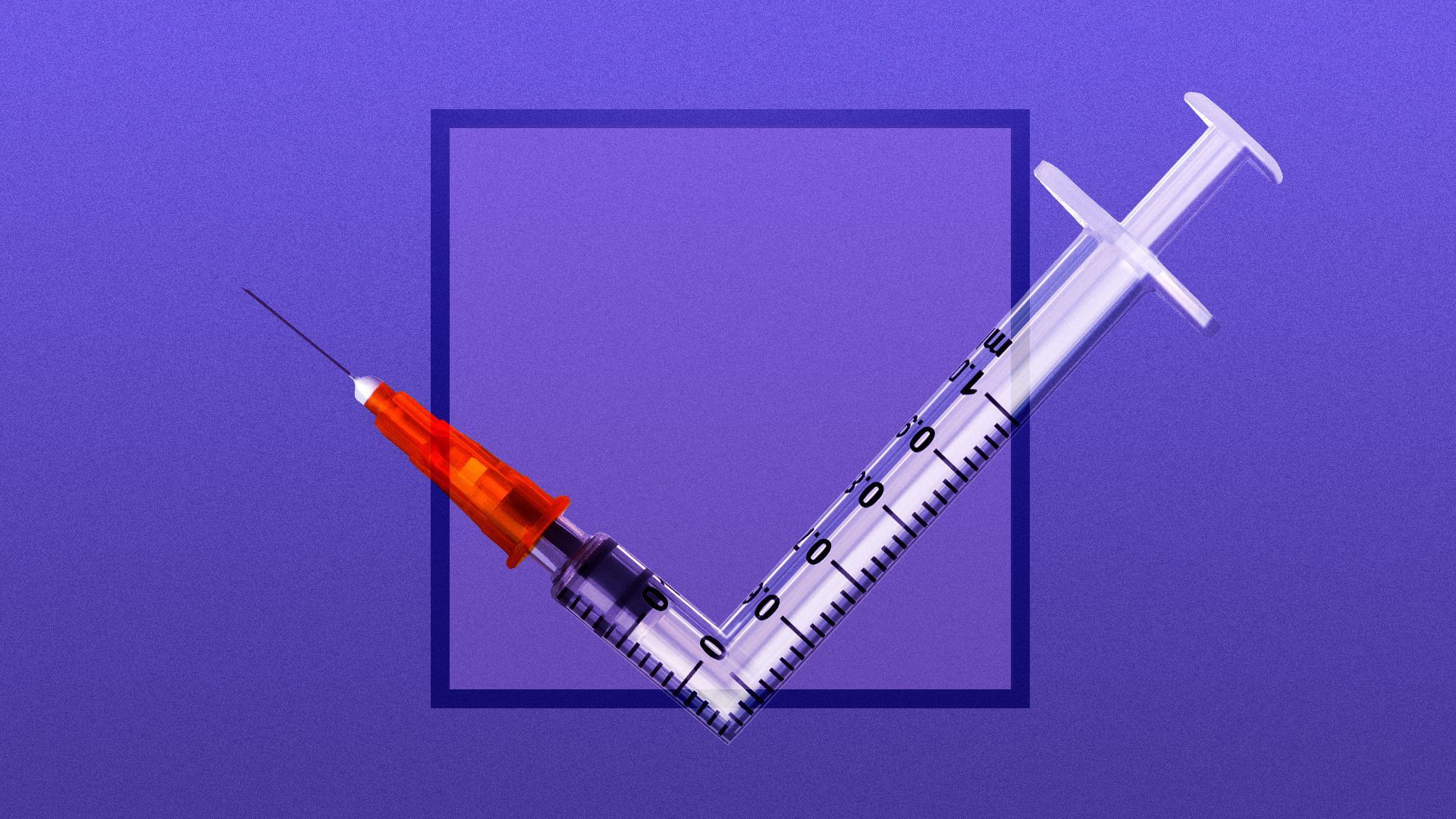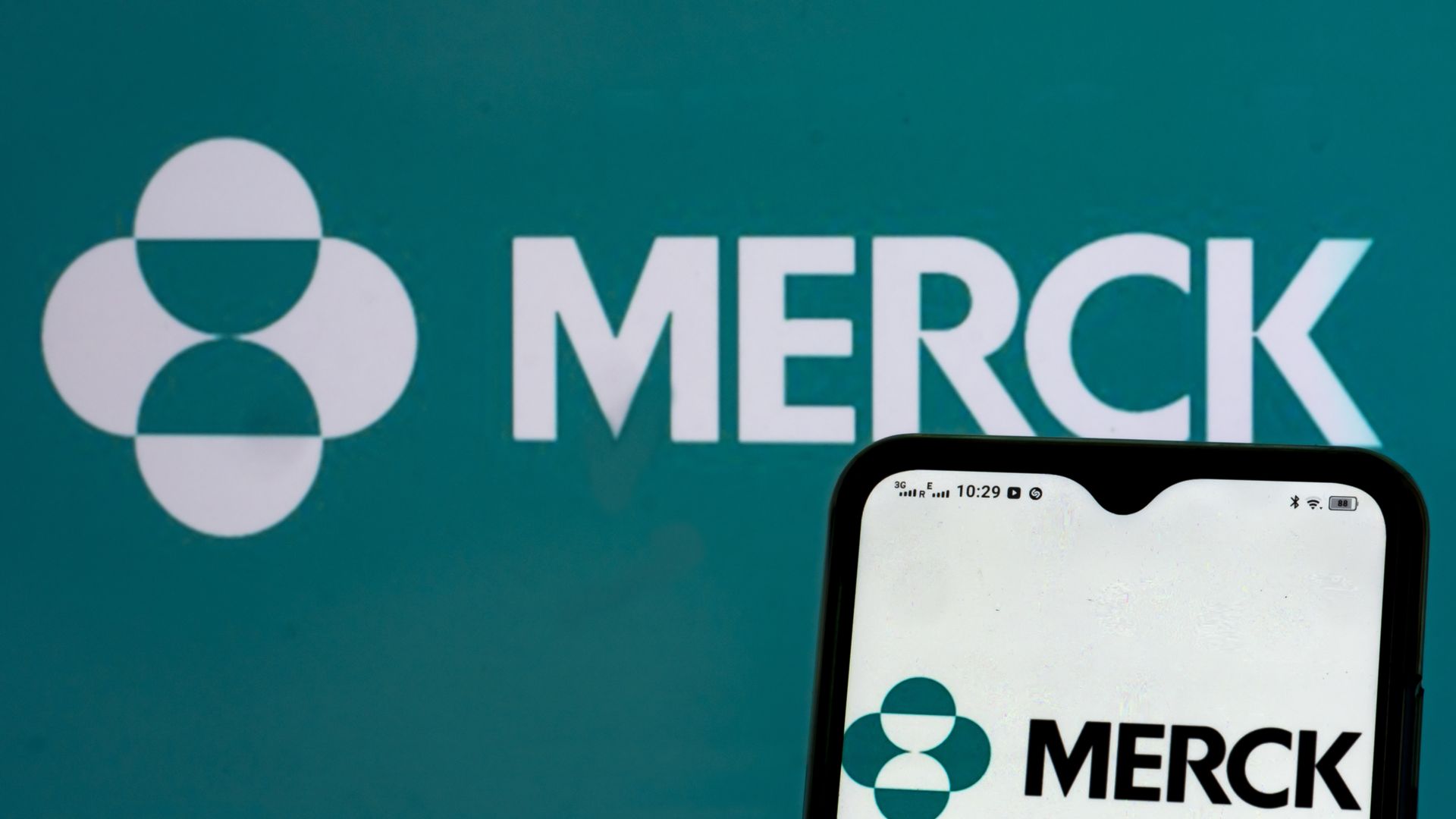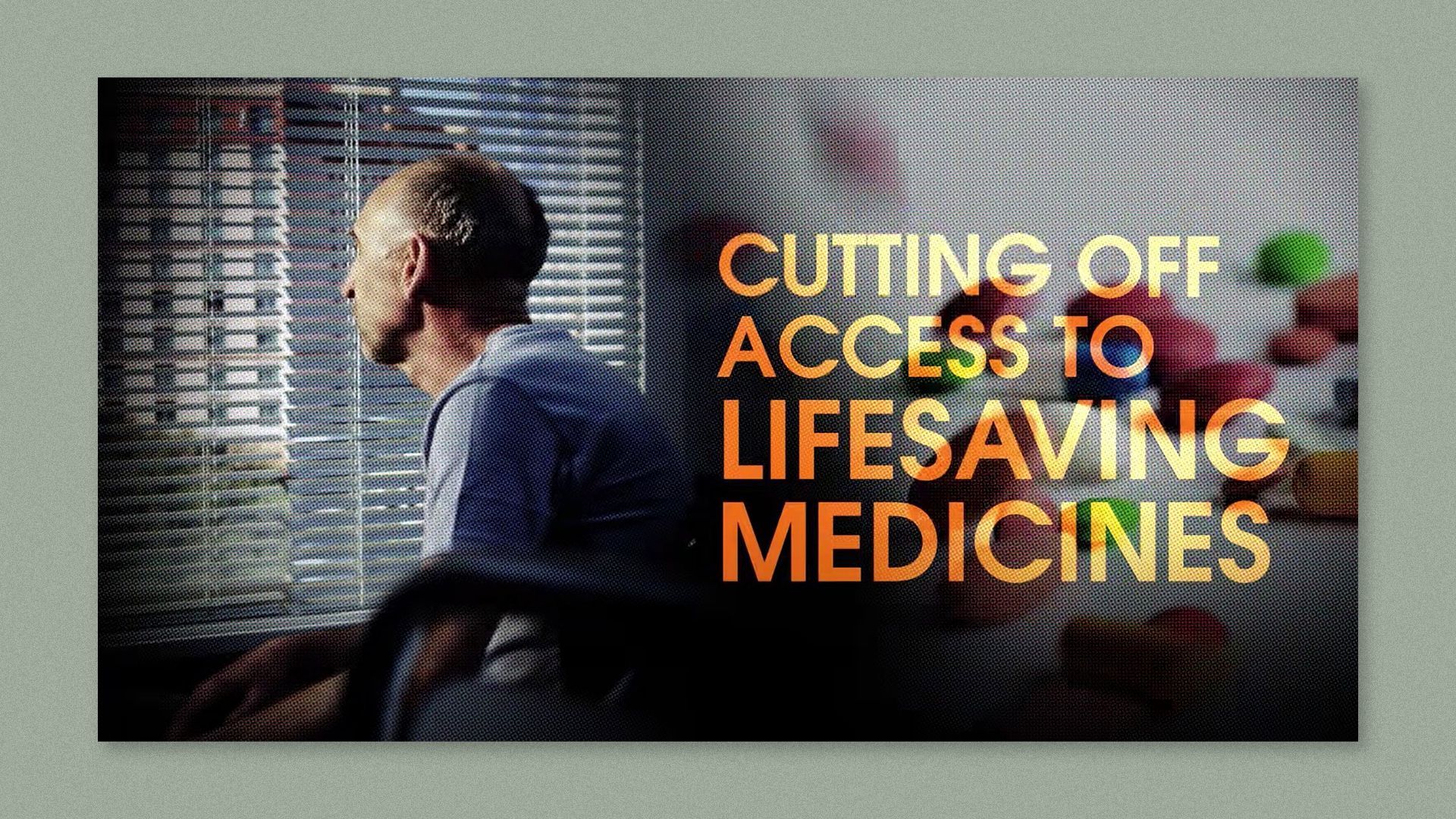| |
| |
| |
| Presented By UnitedHealth Group |
| |
| Axios Vitals |
| By Tina Reed ·Oct 04, 2021 |
| Good morning, Vitals readers. Today's newsletter is 1,043 words, or a 4-minute read. Situational awareness: Johnson and Johnson plans to seek emergency use authorization from the FDA for a booster dose of its COVID vaccine, the New York Times reports. |
| |
| |
| 1 big thing: Coronavirus vaccine mandates are working — for now |
 |
|
| Illustration: Sarah Grillo/Axios |
| |
| Coronavirus vaccine mandates imposed by employers seem to be working so far, suggesting that most vaccine holdouts would rather get the shot than lose their job, Axios' Caitlin Owens writes. Why it matters: Every vaccine helps in our fight against the coronavirus, although the U.S. still has a long way to go. Driving the news: States with vaccine mandates for health care workers that have taken effect, like California and New York, have seen a large uptick in vaccinations. - These, of course, are blue states and have higher vaccination rates to begin with. But some health systems in red states, like Texas, have seen similar results when their mandates took effect.
- High-profile mandates outside of the health care sector have also been successful. For instance, United Airlines achieved nearly 100% vaccination among its employees, and Tyson Foods announced that more than 90% of its workers are now vaccinated.
- The Biden administration announced that it will require all employers with 100 or more employees to ensure their workers are vaccinated or tested weekly, but this hasn't yet been implemented.
Yes, but: Hospitals and long-term care facilities are already stretched so thin that it won't take a mass exodus for them to feel the effects of layoffs. - In New York, Gov. Kathy Hochul signed an executive order last week to help provide relief to health systems struggling with staff shortages.
- The Biden administration announced nursing home workers will soon be required to be vaccinated, which could be a much tougher lift. Only about two-thirds of nursing home staff are vaccinated.
What they're saying: "As we get down to the harder core unvaccinated who are more resistant, what we are seeing is that reality is a more powerful tool to change behavior than information and messaging," said Drew Altman, president and CEO of KFF. |
    |
| |
| |
| 2. 💊 Promising antiviral likely delayed by feds |
 |
|
| Photo illustration: Igor Golovniov/SOPA Images/LightRocket via Getty Images |
| |
| Merck offered promising news last week that its antiviral drug candidate may significantly reduce COVID deaths — but that same drug might have been developed faster if the feds hadn't turned it down for funding last year, Caitlin wrote over the weekend. Driving the news: In late February of last year, an Emory University professor and Ridgeback Biotherapeutics asked for federal funding of the drug as a treatment for COVID-19. Officials fought and ultimately declined to fund it. Merck eventually acquired the drug, and the Biden administration announced in June that it had bought 1.7 million courses of the antiviral pending authorization by the FDA. - The company then announced Friday that the drug reduced the risk of hospitalization or death from COVID-19 by around 50% in a clinical trial.
Between the lines: There is no telling what would have happened if federal funding had been approved at the time. What they're saying: "You could have theoretically had this seven, eight months ago maybe," said a former senior Trump administration HHS official who was present for portions of the dispute. |
    |
| |
| |
| 3. Pfizer loses case to subsidize heart drug |
 |
|
| Illustration: Shoshana Gordon/Axios |
| |
| Pfizer cannot directly or indirectly pay out-of-pocket costs for Medicare patients to get the company's $225,000-a-year heart drug, because doing so would violate federal kickback law, Axios' Bob Herman wrote over the weekend about a U.S. District Court ruling. Why it matters: The ruling in this closely-watched case means pharmaceutical companies still cannot cover the copays and other costs of their drugs for patients who are enrolled in government insurance programs because it would be viewed as an illegal inducement. - "We are disappointed in the ruling and believe that providing copay assistance to patients who have been prescribed tafamidis through Medicare Part D represents an equitable way to lower out-of-pocket costs for this breakthrough treatment," Pfizer sent a statement.
The bottom line: "While there may be an administrative or legislative remedy to the problems Pfizer seeks to correct here, the remedy does not lie with the court," Judge Mary Kay Vyskocil wrote in her ruling. |
    |
| |
| |
| A message from UnitedHealth Group |
| Helping to advance health equity by improving health literacy |
| |
 |
| |
| Up to 59% of people in certain U.S. counties have limited health literacy, with older Americans demonstrating the lowest levels of any age group. See how UnitedHealth Group is working to improve health literacy to achieve better outcomes. |
| |
| |
| 4. Stark divide in industry outlook |
 |
|
| Illustration: Aïda Amer/Axios |
| |
| Nearly three in five U.S. health care workers are optimistic about where the industry is headed, according to a new poll released today by Morning Consult. Why it matters: Amid increasing concerns about burnout in health care and workforce shortages, the poll of more than 900 workers between Sept. 2–8 shows there is still a lot of optimism about the health care profession even as workers deal with stressful working conditions. A common theme among the responses was the message that "working in healthcare is hard and it's something that should only be done if you are completely committed to it." - Responses ranged from one worker who said "it's a great career," to another who said young people should avoid the field "unless you have a death wish."
- The poll also found men were more likely than women to be optimistic about the future of the health care industry.
|
    |
| |
| |
| 5. GOP targets Dems with "Medicscare" ads |
 |
|
| A screenshot of an ad targeting Rep. Frank Pallone (D-N.J.). Courtesy: A Healthy Future |
| |
| Conservative and industry groups are trying to whip up opposition to President Biden's massive social spending plan, warning it will imperil Medicare benefits, Axios' Lachlan Markay writes. Why it matters: "Medicscare" is a well-worn political tactic precisely because it's effective. For Democrats, there's zero room for defections against the $3.5 trillion proposal if they want to pass it. What's happening: Senior citizens in Arizona, represented by Sen. Kyrsten Sinema (D-Ariz.), potential Democratic holdout, have started receiving large boxes labeled "Medical Shipment. Please open immediately." - Inside, they find an empty prescription drug bottle and literature warning of Democratic plans to "ration Medicare Part D." That's a reference to a budget reconciliation bill provision to allow the government to negotiate Medicare reimbursement rates for prescription drugs.
The big picture: Democrats have turned to drug pricing reforms to offset part of the legislation's massive price tag. - It could be a major sticking point for groups looking to peel off wobbly Democratic votes. Sinema has already said she opposes it.
Yes, but: The Mediscare tactic is larger than the drug pricing fight. Americans for Prosperity, the Koch-backed conservative advocacy group, is running its own ads warning of much larger impending Medicare cuts. Go deeper. |
    |
| |
| |
| 6. While you were weekending |
 |
|
| Illustration: Aïda Amer/Axios |
| |
- The U.S. surpassed 700,000 deaths from the coronavirus on Friday, according to data from Johns Hopkins University. (Axios)
- Snapchat has been linked to the sale of fentanyl-laced counterfeit pills that have caused the deaths of teens and young adults in at least 15 states. (NBC News)
- COVID-19 charges at hospitals can vary by tens of thousands of dollars. (WSJ)
|
    |
| |
| |
| A message from UnitedHealth Group |
| Improving health literacy can achieve better health outcomes |
| |
 |
| |
| UnitedHealth Group's research shows older Americans in counties with the highest health literacy levels have fewer hospitalizations and experience 13% lower costs. See how we're working to provide clear, simple, actionable health information to help people achieve better outcomes. |
| |
 | | It'll help you deliver employee communications more effectively. | | |
No comments:
Post a Comment